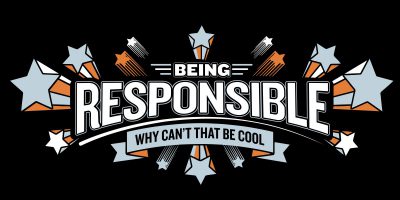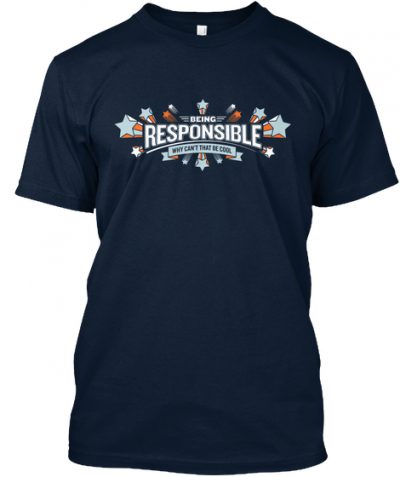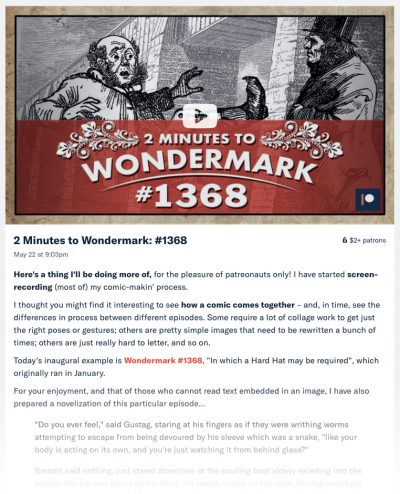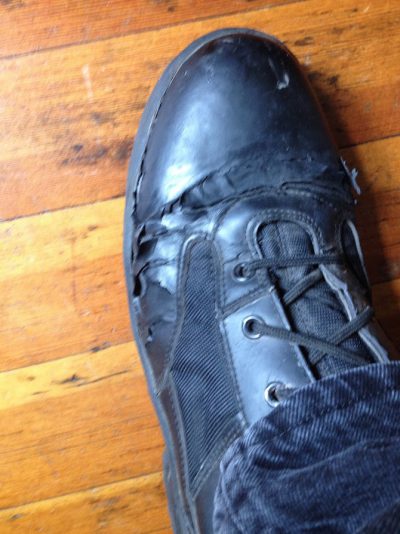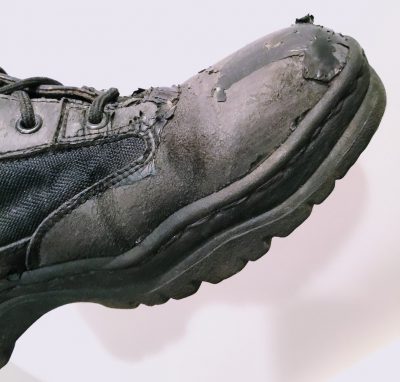Embed from Getty Images
It’s tax time again, of course, and I see a lot of freelancers (artists and writers and others) bemoaning the big tax bill they have coming due, feeling as frustrated as this stock footage lady whose computer is inexplicably off.
On Twitter the other day, I thought it would be a good opportunity to give a broad overview of what it means for a freelancer or independent type to create a corporation or an LLC, and what the tax benefits can be, and what the challenges might be as well.
Not to bury the lede here, but the takeaway from this is that in some cases, you can save a lot of tax money by paying yourself through a corporation or an LLC. In some cases! If you are making decent money as a freelancer, you might consider incorporating or forming an LLC if you haven’t already.
So in this post is the same information for posterity, in a slightly expanded and more readable form!
I hope you find it interesting, and if you think I’ve gotten something wrong, feel free to leave me a comment and explain why I am an idiot, or might be going to tax jail. I will appreciate the head’s up (and check the comments to read corrections folks may make).
I should also note that this is at least a “102-level” overview of decisions you may have to make as a freelancer or small businessperson to optimize your business structure. Jim Zub posted a more “101-level” overview of the basics of tracking business expenses, etc.:
I’m assuming you know how to keep receipts for your business expenses and so on, but if that’s a new concept or you’d like a refresher, read Jim’s thread!
Why are taxes taken out of one’s paycheck?
First caveat: I don’t know what the new Republican tax bill will do to this information. It probably will change it a little bit. Also, I live in California and your area may differ with regard to state & local taxes. So please remember to do research or to consult a tax professional for your specific case.
Second caveat: I only know what I have done and I’m comfortable recommending for people in GENERALLY my same shoes. I have a small business, and I make my money as the owner of the business. Your situation may differ!
OKAY. Starting from first principles: When we talk about “self-employed” people we mean people who get money NOT in the form of a paycheck, and by “paycheck” I specifically mean a payroll-issued check with taxes taken out.
Payroll checks are the ones that you get at most jobs. You fill out a W4 form with your Social Security number (SSN), number of exemptions (we’ll get to that), and so on.
Generally the company deducts, from your overall wage, three things: income tax withholding, payroll taxes, and the share you pay of your medical insurance (if your job offers insurance). The insurance part isn’t really relevant here, but I will touch on it again briefly later.
Income tax withholding is just prepaying the income tax you will eventually owe. When you fill out the W4 and name your exemptions, you are telling the company how MUCH tax to withhold for your eventual income tax bill, based on how much you think you’ll pay at year’s end. If you withhold too little (to take home more), you will have to pay the balance later. It affects the amount of your check each pay period, but not how much tax you actually pay or owe — it’s just a choice to pay in more or less during the year.
Payroll taxes include charges for unemployment insurance (which you can claim if you are laid off), Social Security (which you can claim at retirement), and Medicare (same). These are paid directly to the IRS and to your state. You never see that money back unless/until you make the claims listed above.
At the end of the year, you get a W2 form that shows your total pay and the total amount withheld in all categories. So when you file your taxes, the W2 shows that you have earned X amount, and thus paid taxes on X amount.
But when you have other deductions, say for dependents, or mortgage interest, or charitable donations, etc., those amounts are subtracted from your income, and thus your taxable income total goes down. This means, if you have a lot of deductions, that you might get a refund for overpayment!
(You can also claim the “standard deduction” which is an average amount. If you have a lot of individual deductions that add up to more than the standard deduction, you should list them all, or “itemize”. If you don’t itemize, you can claim the standard deduction instead. There is a lot in the new tax law changing the rules around deductions but that’s a bit of a separate topic.)
What about income that doesn’t come from a paycheck?
If at the end of the year, you paid taxes on X amount through your regular job, but then ALSO earned OTHER income, such as freelance income, or income from somewhere like Patreon or Gumroad or Kickstarter, you now probably have paid TOO LITTLE tax. Boo!!!
This is where SELF-EMPLOYED INCOME becomes a factor. Any income in which you are paid NOT via payroll, and taxes are NOT deducted in advance (aside from investment gains, etc.), is SELF-EMPLOYED income, also known as freelance or contract work. YOU’RE responsible for figuring the tax that you owe, because YOU are your own employer, whether you like it or not!
To be clear: if you are doing freelance work basically as a regular job, working someplace where THEY set the hours and THEY provide the work materials at THEIR location, technically speaking that is not supposed to be freelance work. They should put you on payroll.
For short gigs it’s often too much trouble, but for months on end? They may be keeping you as a contractor because they don’t want to pay you benefits, or because they (or YOU!) don’t want to deduct payroll taxes, and therefore diminish the size of your paycheck. But an employer can get in trouble if they treat a long-term full-time employee as a contractor.
Unemployment insurance is a benefit of employment, by the way! If you are not on payroll, then you cannot claim unemployment if you are laid off. Unemployment claims aren’t paid by the employer, but they DO ding the employer — it changes how much they have to pay into the system. So the employer may be trying to avoid that cost, and that risk, at your expense.
BACK TO YOUR EARNINGS: If you are paid, as a contractor, by anyone in an amount totaling under $600 in a year, then neither you nor they are obligated to report that income to the IRS. Cool! Easy peasy.
(Edited to add: Q commented to say, “If a client pays you less than $600, YOU still are legally obligated to report that income to the IRS on Schedule C and pay tax on it, even if you don’t get a 1099. Some people are disorganized and don’t send 1099s! This is why you need to carefully track ALL your income from all sources.” To which I would say, yes, you are legally obligated to report it. You are also legally obligated to pay “use tax” when you buy something out of state you didn’t pay sales tax on. Consult your own conscience in these matters.)
If you are paid OVER $600 in a year, you should be prepared to submit a W9 form, and you will receive a 1099 statement of earnings at the end of the year. This means the IRS knows you earned that money, so you’d better report it on your tax return.
You now owe…DUN DUN DUN…SELF EMPLOYMENT TAX.
In a nutshell, this means YOU are responsible for paying those payroll taxes that otherwise your employer would have otherwise paid. And guess what else? YOU HAVE TO PAY DOUBLE.
The reason is because, even though taxes were taken out of your check, your employer ALSO had to pay an equal amount FOR you, directly to the IRS and to your state. It’s another “benefit” you get by being an employee — they share the tax burden with you.
But as a self-employed person, remember, you are BOTH the employee AND the employer! So you get to pay BOTH HALVES! Hooray!!
(There are MANY ways that government makes life difficult for small businesses and freelancers, and this is just one of them.)
If you are issued a 1099 I believe you HAVE to file a Schedule C (or Schedule C-EZ, the simplified version) which is for SELF EMPLOYMENT INCOME. Both halves of the payroll tax (SSI, Medicare, etc) add up to about 15% of the total amount you earned. You pay that!
And THEN you pay income tax (in whatever bracket you’re in) on the remainder!!* So if you’re not planning for that, this can be QUITE A BIG BILL TO PAY. Better save up!
(Edited to add: Patrick H. emailed to point out that no, you pay income taxes on the WHOLE AMOUNT, payroll taxes notwithstanding. Even worse!! However, as you will soon learn, businesses who PAY people via payroll can deduct the half they pay for you as a business expense. This becomes important later — I’ll put another * down where it relates.)
You can also pay QUARTERLY ESTIMATED TAXES. This is when you send in checks in June, September, and January (IN ADDITION to April 15) for what you THINK you MIGHT owe at the end of the year. If you overpay, you get a refund; if you underpay, your April bill is bigger.
The reason for this is that the IRS figures people are more likely to pay if they have to pay smaller amounts throughout the year. Do you HAVE to pay quarterlies? No, but you get a (very small) penalty for “late payment” if you don’t. In my case I’ve been penalized less than $100 for skipping two or three quarterly payments.
If you otherwise would be put in hardship by paying the tax quarterly, then you might consider that penalty an “interest payment” for keeping the IRS’s money a bit longer. BUT, of course, making quarterly payments does help you avoid a giant tax bill in April. You might even get a refund.
Doing freelance work automatically makes you a business.
Is there an income threshold at which you should be filing Schedule C and paying quarterly payments? Consult your tax professional! For a few hundred bucks here or there it may not be necessary. But at the thousands of dollars of freelance income level, you are A Small Business.
If you do NOTHING, by default you’re a SOLE PROPRIETOR. “Your Name” is the name of your business, and your Federal Tax ID number is your SSN. If you don’t want to hand out your SSN all the time, you can apply for a Tax ID that is just for tax forms. The one you want is called an EIN (Employer Identification Number) and you can apply for it online.
The EIN you get still represents you (as a sole proprietor), but it’s not linked to your personal credit scores, loans, etc., and so unlike your SSN, it can’t be used to steal your identity. Go ahead and get one, it’s free! As a Sole Proprietor, you are In Business but you are just a human being. You pay self-employment tax on your freelance earnings.
“What else could I be?” Well, if you want to have a business name that’s not your own, you can file a Fictitious Business Statement, also known as a DBA (Doing Business As). In my area it’s administered at the county level. This gives you a DIFFERENT legal business name.
To get a DBA, you fill out a form that makes a public record saying “Joan Smith is doing business as Fancy Puppy Grooming.” Then you can get a bank account in the name of, and cash checks as, Fancy Puppy Grooming. If anyone official wants to know what this puppy grooming firm is all about, there’s a record that points back to you, since it’s still just you.
A DBA does not affect your taxes, but it allows you to do business under a name that is not your personal legal name, so it’s a topic worth mentioning.
Transitioning to an LLC or corporation
HERE IS THE INTERESTING PART. There is a way, as a freelancer, to AVOID (some) SELF-EMPLOYMENT TAX. You can form an LLC or a corporation, and put YOURSELF on the payroll as your own employer AND employee! Reap those “pass-through” benefits everyone talks about!
An LLC (limited liability company) or a corporation is a SEPARATE LEGAL ENTITY that you can be the owner of (or a part owner of). If your job is doing something dangerous that could get you sued, you WANT a separate legal entity to be the one who did the thing, so only the company can get sued, not you!
That is ONE reason to form an LLC/corporation, and it’s a whole topic of its own, but the tax benefits for freelancers are another.
There are different types of corporations, and what you want is probably a Subchapter S corporation or “S corp”. It’s the simplest.
Giant public companies are usually “C” corps. Their profits are taxed at the corporate level, before earnings are passed down to shareholders. Small businesses are usually S corps because only the OWNER is taxed on income, not the company itself. The income “passes through”.
The differences between an LLC and S corp are very minor. For Machine of Death we have an LLC because one of the owners (Ryan) is a citizen of Canada. S corps don’t allow foreign owners. So there are rules distinctions like that.
Most freelancers can choose either. For the sake of simplicity I’ll start saying “company” to refer to both S corps and LLCs. I have one of each, and the rules are mostly identical.
How do you form a company? You go to a law firm like eMinutes.com and fill out a form, it’s easy peasy. Costs a few hundo. You sign some documents, pay the fees, and the law firm sends your paperwork to the state.
If you were to do it yourself, it would be quite complicated — the aforementioned documents are pretty complex if you were to fill them out from scratch. But incorporation firms like eMinutes already have a bunch of blank ones that they can customize with your information. This includes your Articles of Incorporation, your company’s founding document that lays out the owner(s), principal place of business, and bylaws.
It’s SO easy to form a company, in fact, that shady people trying to hide the true sources and owners of assets do it all the time! But it can also be used for non-nefarious things.
The rules also differ state to state! You can form the company in your own state, or in, say, Nevada (assuming Nevada is not your state). See, SOME states want your out-of-state money, so they make their company-forming rules VERY FLEXIBLE. For example, you can rent a PO box in Nevada and form your company there. The PO box will forward your mail to wherever you are. Whole industries are set up to aid this.
Why would you form a business in Nevada? Well, in California, companies have a MINIMUM income tax of $800, REGARDLESS of income. In Nevada there is no such thing! So you would save money operating out of Nevada. Or Delaware, or probably some other states. Every credit card firm is headquartered in Delaware because the laws there are VERY FRIENDLY to giant financial firms (thanks, Joe Biden!).
“BUT WAIT,” you say, “I thought you could SAVE MONEY by forming a company!” Ah, mes amis, we are getting to that, as Poirot would say!
The rules for STATES vary. A company like eMinutes will form your company and also help with various legal filings that are necessary over time (for a fee). Your company gets its own Tax ID number, and has to file its own tax returns. The company, through your accountant, issues you, the owner, an earning statement called a K-1 at the end of the year. California has that grody $800 minimum tax, and those filings and paperwork all cost money…
…But for me, it’s STILL worth doing because the OVERALL benefit is greater than those costs. And it scales.
How to operate as a company, rather than as an individual
OKAY: so you have a company. Now what? How do you…y’know, use it?
You get a bank account in the name of the company, and pay in some money (your “owner investment”). Now you own all the shares in the company, and are entitled to reap the profits.
You get a credit card for the business, if you like (I do, because it earns me rewards on all business purchases, and I pay the card off every month so I never pay interest). You use your BUSINESS accounts to purchase all your supplies and equipment and pay for expenses such as travel and web hosting and so on. You tell everyone who’s going to pay you to pay the COMPANY instead, by sending them a W9 form in the name of the company rather than in your own name. You let the company cash checks and receive deposits.
Now the company has money, and you own the company! TECHNICALLY, YOU have money!
If you get paid from places like Kickstarter, Kindle, Patreon, Square, PayPal, Gumroad, etc., they all have ways to set up the company as the recipient of funds. If you do freelance work, issue the invoice in the name of the company. Let the company make ALL the money.
You can even do work you would ORDINARILY do as a payroll employee, for some other employer, AS A COMPANY INSTEAD. This is called a “loan-out” — your company is loaning its employee (you) to the other company. Some employers allow it, some don’t. But if they do, they pay you your FULL WAGES, without withholding taxes! They assume (rightly) that YOUR company will deduct taxes when the employee (you) is paid. So they will give you the full amount upfront.
OKAY, now the company has money! But now what happens? How do you GET that money as a human being, AND save taxes in the long run?
First thing to realize is that if you are doing enough freelance business to make forming a company necessary (I’ll explain the threshold shortly), PROBABLY most of the stuff you do is related to the business. Trips you take, stuff you buy (books, movies, games are all RESEARCH)… Most of that is stuff that the company can pay for.
So if the company earns money, and then buys the thing, then YOU as the owner/employee GET that thing. So lots of money doesn’t NEED to ever LEAVE the company. You deduct those purchases as business expenses.
Of course, that’s true of a Sole Proprietor too. You can deduct business expenses no matter what kind of business you have. But in general, just realize that your PAY from YOUR company doesn’t need to be enough to cover all the THINGS and EXPENSES you have. The company pays for those!
Of course, you do need SOME pay. You need cash to pay for your personal expenses (rent, groceries, emergency vet visits…). If you have a home office or use your phone/internet for work, you can deduct a FAIR PERCENTAGE of your rent and phone/internet bill as a business expense.
Without another job, or union or association benefits of some sort, you will have to get private health insurance. If you get at least one other full-time employee who’s not you or a member of your household (such as your spouse), you can set up a group plan for your company…But not as one individual or one family. As a self-employed person, though, you can deduct your health insurance premiums as a business expense.
BACK TO YOUR PAY: When you need money from your company, you have two choices: issue yourself a paycheck, or take an owner distribution.
Remember, as the owner of the company, you own 100% of the shares. You can make the company issue a “distribution” to its shareholders at any time.
This is — pay attention here — INVESTMENT INCOME and NOT PAYROLL INCOME. You DON’T pay payroll tax on this money.
The other thing you can do is issue a paycheck. You can do this manually or through a payroll service (there are lots of them out there for freelancers). This means you pay yourself as an employee, and deduct the regular payroll tax. You send that tax to IRS & state, and take home a net amount like any other paycheck.
“But wait,” I hear you saying, “Why not just do the distribution thing you just mentioned? I thought I was trying to AVOID paying payroll tax?”
Thing is, if you ONLY take distributions, the IRS looks askance at that. Besides, taking payroll is the only way to accumulate Social Security, Medicare, and unemployment credits. You won’t want to claim unemployment, but that’s the calculation that’s used if you ever claim disability or take paid family leave. A meager payroll record means less benefits accrue to you.
So you SOMETIMES pay yourself with a paycheck, deducting taxes, and you SOMETIMES take a distribution. And you use the company money to buy yourself anything you need for your business, so you don’t actually NEED as much payroll income as you otherwise might.
The tax math of being the company’s owner AND its employee
At the end of the year, you will tally up your company’s revenues and its expenses.
As the owner of the company, you will pay INCOME tax based on the company’s earnings, because that’s profits. This is the “pass-through” thing: the company ITSELF doesn’t pay anything (except for weird cases like CA’s minimum tax), but the SHAREHOLDERS (you) end up with INCOME.
The reason this matters is because of what is actually being deducted when you are paid via payroll. Remember the two main categories that take a chunk from your paycheck: income tax withholding, and SSI/Medicare/SDI (disability/unemployment).
Only the latter set are “payroll taxes”. Those are what you have to pay (double) on ALL your income on a Schedule C as a self-employed sole proprietor.
As a company owner and employee, you still pay those on your PAYCHECKS, but NOT on your distributions or other earnings as an OWNER.
Remember, income tax withholding is just prepaying your income tax. You always have to pay income tax on everything you earn. But on distributions and company earnings, income tax is the ONLY tax you pay — you don’t pay payroll tax.
Here’s an example to make this clearer.
Let’s say you, as a sole proprietor freelancer, make $50K in a year. You have to file a Schedule C. You deduct $10K in business expenses, leaving taxable income of $40K. You pay self-employment tax (double payroll tax) on that whole 40K, and then income tax on the whole 40K as well.
(* This is where the distinction we mentioned above becomes important. This section has been edited to clarify this particular detail.)
Alternately, let’s say your COMPANY makes $50K. You deduct the same $10K for expenses. You choose to take $15K in payroll, and pay payroll tax twice: as the employer, paying the tax agencies about $1000, and as the employee, seeing another $1000 deducted from your check, leaving $14K that you take home. The remaining $24K is the profit the company made (your payroll, and the payroll taxes the business paid, are deductible expenses). You can take some or all of that as a cash distribution (write yourself a check), but maybe not all; best to leave some of it in the company as working capital.
The point is, now you’re paying income tax on 39K of revenue, but payroll tax on ONLY the 15K you took as payroll. (Plus, remember, the half of the payroll tax you paid as employer is now deductible as a business expense.)
THERE’S the tax savings. You SAVE payroll tax on all the company profit that you DON’T take as a paycheck, and you SAVE income tax by being able to deduct half the payroll tax you DO pay — but you still get to USE the company profit to do things for your business and yourself in your employee role.
When is the extra trouble of forming a company worth it?
HERE’S THE RUB: It does cost money to set up a company, and do tax filings, and sometimes there are other expenses such as the CA $800. It costs money to use a payroll service.
So those tax savings — about 15% of the margin between your revenue and your paycheck — have to outweigh those costs.
It’s not worth doing if that margin isn’t big enough to save you money OVERALL — although there are other benefits, such as liability protection and also the ability to sell all or part of the company, if that has value to you.
(Edited to add: Commenter fluffy expanded on this latter point, writing “There’s another reason to form an LLC: liability. If you do something that gets you sued (which can happen due to accidental IP infringement or doing a parody of a very litigious company’s assets or the like), the LLC shields you from personal liability when it comes to being sued. So, if you work in parody, or make music or software, even if the immediate tax benefits of an LLC aren’t worthwhile it might still end up saving your butt for other reasons.”)
But if revenue is high, that margin can be big.
My back-of-the envelope calculation (back in 2012, note) was that if you are making over $50K in freelancer income, you might see a tax benefit to working through a company.
If you’re making less, then the costs and trouble are probably too high to be worth any tax savings. Mainly because the less money you make, the more of it you actually NEED for personal expenses and so the more you will actually have to take as payroll throughout the year. Conversely, the more money you’re making, or the lower your cost of living personally, the less you will have to take out of the company as payroll.
(Even that aside — I also LIKE having a company! It helps you keep things compartmentalized for accounting, etc. Even though I think California is a particularly hard state to stay compliant in — there is a lot of paperwork and it can be more time-consuming and aggravating to do it all. It is really frustrating to hear politicians talk so much about “helping small business” and “business friendly climate”, etc., when it is FRIGGIN HARD to do the paperwork you need to run a business in accordance with city, county, state, and federal regulations. It’s DUMB. But I still like the parts of it that aren’t dumb.)
Final caveat, this is all based on my own experience and understanding, please consult someone local and/or smart to answer specific questions in your own circumstance!
Also, sovereign citizens are not a thing.
Thank you for reading, I hope you found it helpful. I’ll end with a plug — if you are in California, my sister is an accountant and does my bookkeeping and taxes and does a great job, if you need someone with loads of experience in managing small business/freelancer stuff, I’m happy to pass on a referral.

